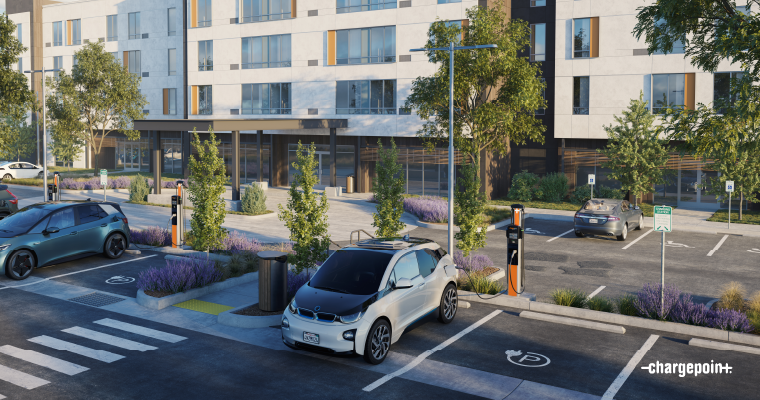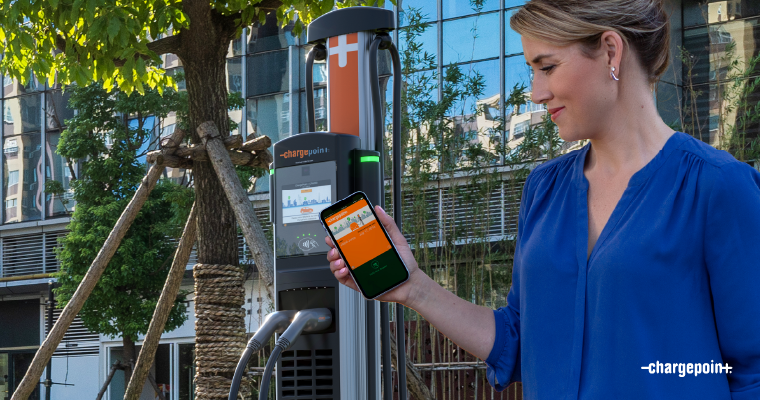Navigating UK public charging regulations: A guide for ChargePoint Operators
The EV Industry | 27/3/2024

In a significant move towards facilitating electric vehicle (EV) adoption, the UK government introduced the Public Charging Regulations in October 2023. These regulations aim to enhance the charging experience for EV drivers across the country. While regulations bring many benefits for drivers, understanding what they mean for the organisations operating public charging stations — the Charge Point Operators or CPOs — in the UK is essential, as CPOs will be responsible for implementing them.
Let's delve into the basics of these regulations and explore how ChargePoint, a leading EV charging network and technology solutions provider (not to be confused with Charge Point Operator), can assist CPOs in navigating this evolving landscape.
Overview of key provisions in the regulation
- Pricing metrics. Effective 24 November 2023, public charge points must display the total cost of a charging session, including connection fees, in pence per kilowatt-hour (p/kWh) on public charge points or through separate devices just like EV driver apps. This provision aims to ensure transparency for EV drivers regarding charging costs. The ChargePoint software platform empowers CPOs to configure a diverse range of pricing structures, including the ability to set a price per kWh. This pricing information is then prominently displayed on both the ChargePoint application and the charging station display, depending on the specific model. The ChargePoint 6000 Series (CP6000) has a 20 cm, full-color screen to display station information to the driver clearly. Enhanced features and functionality allow station owners to set charging fees based on energy dispensed, driver group and time of day.
- Contactless payment. Effective 24 November 2024, new public charge points over 8 kW and existing public rapid points over 50 kW must offer contactless payment options that facilitate access and payment without a pre-existing contract. This simplifies the payment process, enhancing convenience for EV users. The ChargePoint hardware portfolio features solutions equipped with credit card payment technology, empowering CPOs to provide convenient and contract-free contactless payment options for drivers. The CP6000 is equipped with an integrated card reader, and drivers can also start charging via the ChargePoint app, an RFID card or contactless payment.
- Reliability standards. Effective 24 November 2024, CPOs must ensure rapid charge points (>50 kW) maintain 99% availability. This will help ensure consistent access for drivers, thereby reducing range anxiety. CPOs will have to report reliability metrics — measured via the Open Charge Point Interface (OCPI) — to the Department for Transport annually starting in 2026 for the 2025 calendar year. ChargePoint possesses profound expertise and a steadfast commitment to reliability, exemplified by the recent launch of the Network Operations Center (NOC), which strives to achieve close to 100% EV charger uptime.
- Helpline support. Effective 24 November 2024, CPOs must provide a free 24/7 helpline. This readily available support enhances the overall charging experience by providing immediate assistance to drivers in case of issues or queries. Similar to requirements for reliability, CPOs will have to report helpline metrics (complaints and solutions provided) to the Department for Transport on a quarterly basis. The ChargePoint integrated solution brings station hardware, network operating software and driver interface together for an easy, consistent ownership experience, and our driver and station owner support is available to answer any questions that may arise.
- Open data. Effective 24 November 2024, CPOs must maintain accurate data records according to provisions in the regulation. All data must also be made available to government bodies, Distribution Network Operators, Transmission Owners and Electricity Systems Operators upon request. Such data can provide valuable information to aid in important electricity systems planning. In countries where it is mandated, ChargePoint has amassed considerable expertise in collaborating with third-party entities and National Access Points to support government data reporting requirements. This collaboration ensures that the data shared with the public and administration is not only relevant, reliable and accurate but also adheres to privacy laws.
Access ChargePoint public station data in the UK:If you would like to request data via API on any CPOs we serve, you can do so here. Please populate the the 'Network' as ChargePoint CMS'. Please note that this will direct you to an external partner of ChargePoint who we are working with to deliver the UK Government’s Open Data Requirements. The API will provide users with access to all the public charging stations hosted on ChargePoint’s Charging Station Management Software (CMS) in the UK.
- Roaming. Effective 24 November 2025, CPOs must enable drivers to pay through at least one roaming provider at their public charge point. The ChargePoint network is already connected to the major e-mobility service providers (eMSPs) in the UK and across Europe, enabling seamless access to charge points no matter where ChargePoint drivers charge. ChargePoint has entered into roaming agreements to develop an extensive network of charging stations across Europe. This service offers drivers the ability to efficiently locate available charging stations and charge their vehicles using their existing account credentials, after which they receive clear and detailed receipts of their charging sessions.
ChargePoint support for CPOs
As a leader in EV charging technology, ChargePoint offers a comprehensive suite of solutions designed to assist our customers with these regulations. Operating in 18 countries across two continents, ChargePoint has amassed extensive experience collaborating with regulators and governments to shape and implement policies fostering the widespread adoption of electric vehicles and the development of charging infrastructures.
As the UK advances towards its 2035 zero-emission vehicle goal, ChargePoint remains committed to supporting its customers in navigating the framework of evolving public charging regulations. Through innovation, collaboration and dedication, ChargePoint continues to drive forward the electrification journey, ensuring a seamless and efficient charging experience for all EV drivers across the UK.
NB: This blog post provides a high-level overview of the UK’s Public Charging Regulations and should be seen as informational only and not be interpreted as binding regulatory guidance. For a full overview of the Public Charging Regulations, readers should consult the UK Government’s official Regulations (here) and guidance document (here).

